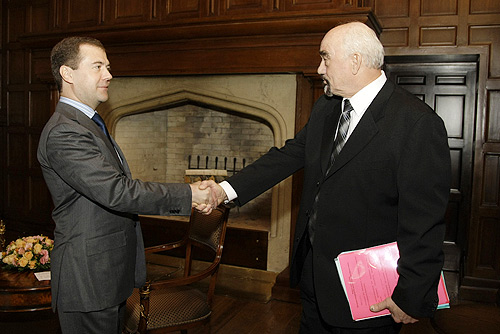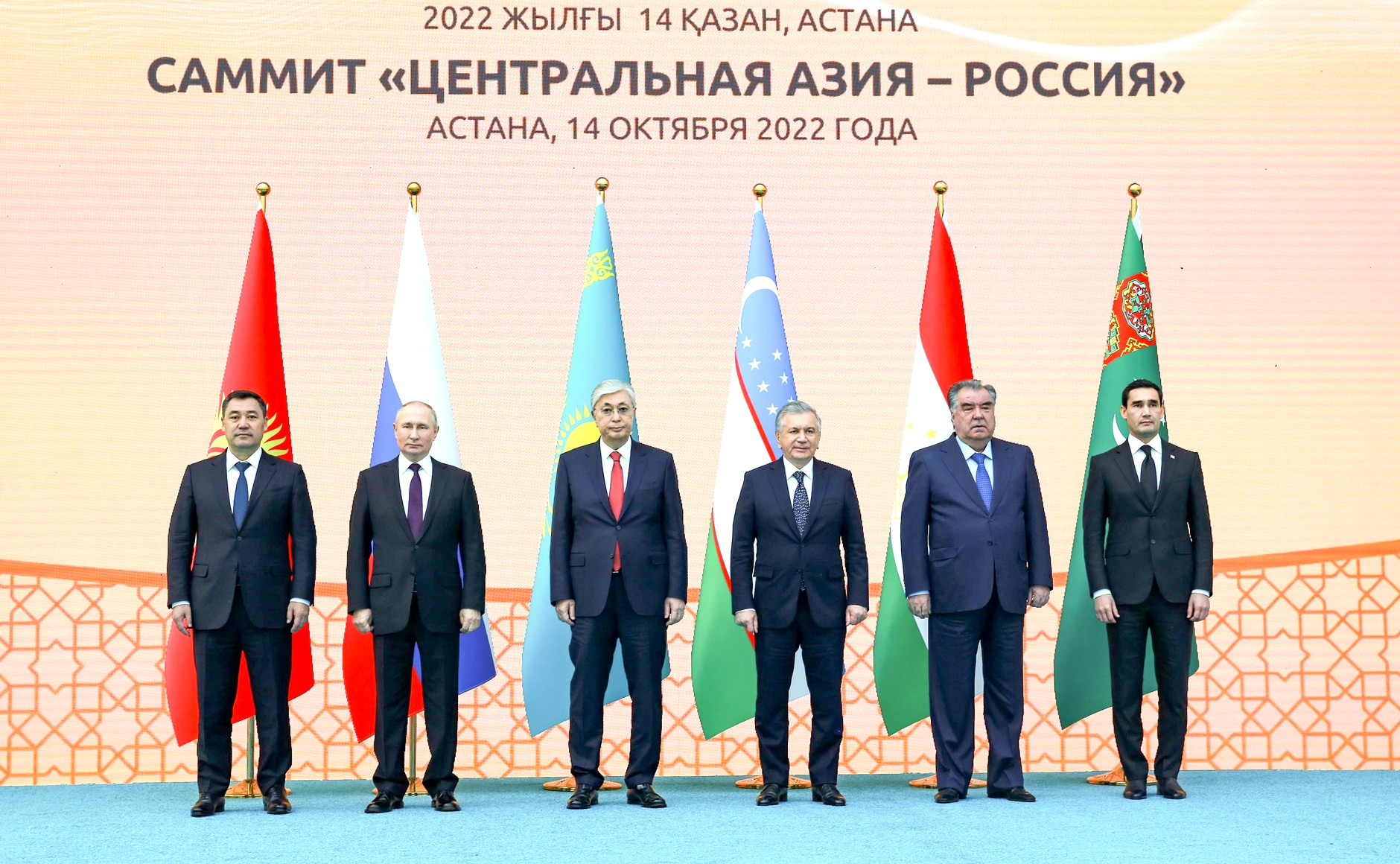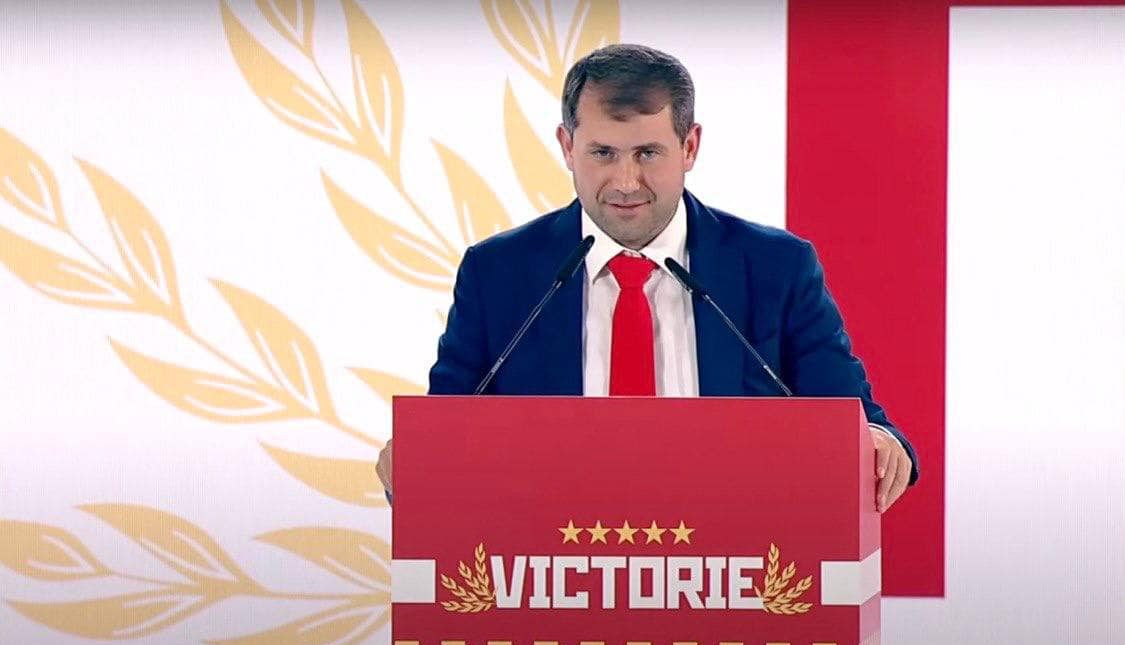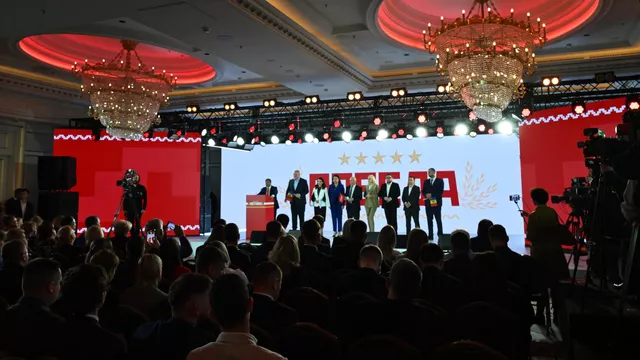
Transnistria Conflict Negotiations On the Brink of a False Start
Transnistria Conflict Negotiations On the Brink of a False Start
Negotiators are meeting in Moscow today (June 21) to re-launch the 5+2 format (Russia, Ukraine, OSCE, the United States, European Union, Chisinau, Tiraspol) for Transnistria conflict-settlement, after a five-year breakdown in the official negotiations. This meeting is expected to decide the resumption of official negotiations at the next meeting on the ministerial level.
The Western-oriented Chisinau ardently wishes, and works for, the resumption of official negotiations. However, the timing is less favorable than at any stage since these negotiations began. Compared with 2005-2006 –when Moscow allowed the 5+2 format to operate for exactly 5 months– the global and European trends have turned against the West. The United States has moved to a back seat, and the dedication formerly demonstrated by US negotiator David Kramer is now missing. The Obama administration prioritizes the reset with Russia, both as a foreign policy strategy and as a 2012 electoral strategy; and meanwhile seems unlikely to irritate Russia in Europe’s East generally or Moldova specifically. The US and EU are enfeebled by financial crises that would have been inconceivable during former stages of these negotiations. Conversely, Russian confidence has rebounded after the economic crisis, and is higher today than at any past negotiating stage.
The European Union’s official representatives (External Action Service) are working hard for a settlement compatible with Moldova’s Western orientation and European interests. However, Germany currently promotes a solution at Moldova’s expense, as part of Berlin’s special relations with Moscow. This is clearly reflected in Berlin’s “non-paper” on Moldova/Transnistria and accompanying diplomatic conversations (EDM, June 6, 8). Chisinau is being told that Berlin’s focus on the Transnistria problem (with Chancellor Angela Merkel’s office directly involved) has opened a window of opportunity for Moldova. However, Berlin is interested in a minimal semblance of progress on Transnistria to justify creating an EU-Russia security and political committee, bypassing the US and NATO on European security affairs (June 2010 Meseberg Memorandum). Given its neo-Ostpolitik and its heavy dependence on Russian energy supplies, Germany cannot be an effective player for Europe on the Transnistria problem at this time. Rather than counterbalancing Moscow’s influence on the negotiating process, Berlin seems to add to that influence.
Lacking status in the 5+2 format, Germany seeks to impact on it from outside, and has even opposed the issuance of an EU non-paper ahead of the June 21 Moscow meeting. The EU and the US have only submitted a short, jointly drafted document for possible adoption at the Moscow meeting. The OSCE, Russia, and Ukraine have each prepared their own drafts for this meeting. All these documents have been circulated to the participants confidentially. The document to be adopted by consensus at this meeting will define the basis for the long process ahead. A document disproportionately reflecting Russian interests would, if adopted, vitiate the process from the start, perhaps irreparably.
The OSCE’s draft document provides a warning in this regard. It largely reflects the Russian-German convergence. It sets the goal of “support[ing] the Meseberg initiative…to resolve th[is] conflict as part of a wider effort to manage cooperatively unresolved problems of intra-European security.” With this, it introduces a goal-orientation wholly extraneous to Transnistria conflict-resolution as such. Indirectly it seeks to generate pressure on Moldova to make concessions for the sake of a higher, allegedly European goal. The loaded word “intra-European” is sometimes being used (as in this case) to reduce the role of the US as an “extra-European” power in European security affairs.
This document stresses “the importance of convening the resumed official negotiations [i.e., at the next meeting] in Moscow, in the presence of senior Russian officials.” This would raise Russia’s status –and credit for the re-launched official negotiations– above the other participants’ status and credit. It also suits Berlin to play up Russia’s role and reward it with the proposed EU-Russia committee.
Curiously, the OSCE draft claims that the re-launched 5+2 negotiations is based on a document adopted in a 3+2 format in 2002, i.e., without the EU and US, three years before the 5+2 format had been created (2005). The OSCE even claims that the 2002 document provides some “mandate” on rules for the re-launched official negotiations after the June 21 Moscow meeting. Even more strangely, the OSCE draft (believed to date from early June) does not even mention a “5+2” format at all. Russia mentions it at least pro-forma in own draft document for the June 21 Moscow meeting, only to say that a re-launched official process in 2011 would derive from the 2002 process of 3+2. This move seeks again to reduce the EU and US role. It would also set a precedent for injecting into the 5+2 format any number of past documents suitable to Russia, that were signed in other formats. The EU and US never signed those documents but would (along with Moldova) be saddled by those documents, if this logic is accepted.
According to OSCE’s draft, “The two Sides in the conflict [i.e., Chisinau and Tiraspol) have equal rights, without prejudice to the final outcome of negotiations, or to evaluation by any party of the current juridical status.” An unprejudiced approach to juridical status, however, implies withholding recognition of Moldova’s territorial integrity. This clearly deviates from the OSCE Moldova Mission’s 1993 mandate, which underscores Moldova’s territorial integrity.
The proposed document calls for “partial, interim, and temporary agreements, on the understanding that they will gradually be included in the [final] document;” and “with the understanding that nothing is agreed until everything is agreed.” This would allow Moscow and Berlin to claim successes for meaningless gestures (none of them binding or definitive) by Moscow and Tiraspol, as arguments for rewarding Russia with the proposed EU-Russia committee. Moreover, nothing is agreed until everything is agreed spells protracted deadlock, and continuing presence of Russian troops on Moldova’s territory for an indefinitely long time.
It seems very unlikely that the OSCE’s Lithuanian Chairmanship could have co-authored such a document. Apparently, some other parties have executed an end run behind the Chairmanship.


